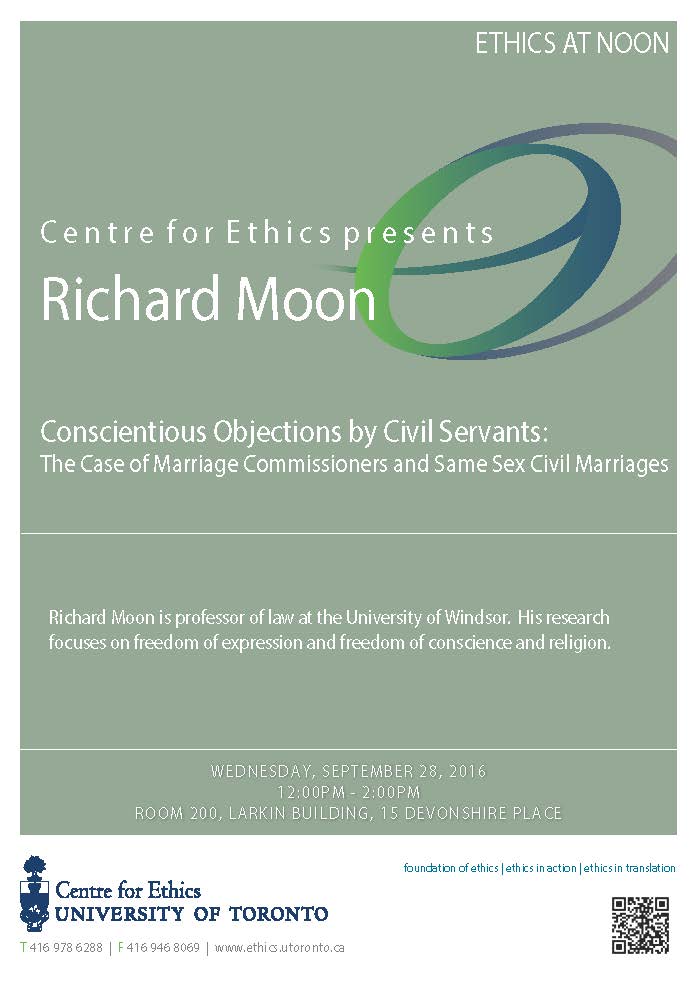The question of whether a province can require civil marriage commissioners to perform same sex marriages, over their religious objections, has been addressed by the Canadian courts in a series of cases. In each of these cases the issue is framed by the courts as a contest between religious freedom and sexual orientation equality that must be resolved through the balancing of these competing interests. And in each of these cases the court strikes the balance in favour of sexual orientation equality, determining that the equality rights of same-sex couples outweighs the religious freedom of marriage commissioners. Despite what they say, the courts in these cases do not balance or trade-off religious freedom and sexual orientation equality, but instead give complete priority to the latter. A refusal by a marriage commissioner to perform a same-sex civil marriage ceremony is viewed by the courts as the cause of harm or injury to the couple (an act of discrimination) and not simply as a competing claim. I will argue that there is no balancing in these cases because there is no freedom of religion interest to be balanced against the right to sexual orientation equality. The marriage commissioner’s freedom of religion lacks substance not, or not simply, because the commissioner is a public official, or because the interference with his/her religious beliefs is indirect or partial. Rather the religious objection of the marriage commissioner falls outside the scope of freedom of religion under section 2(a) of the Canadian Charter of Rights and Freedoms [the Charter], because it involves a belief about how others in the community should behave and be treated. A marriage commissioner has no claim to be exempted from the duties of his or her position on the basis of such a belief.
Richard Moon, Professor of Law, University of Windsor

